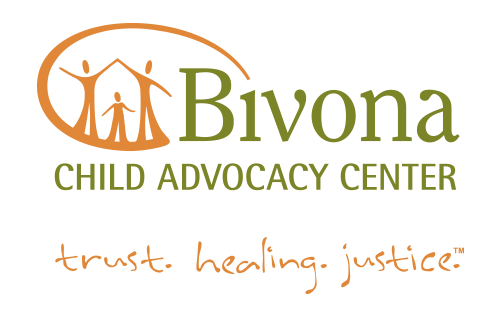Caregivers can lay the foundation for protection with their children by having age-appropriate conversations with them about their bodies and boundaries. Here are some important prevention tips:
Answer questions openly and honestly.
Answering questions casually and comfortably with young children paves the way for the tougher conversations down the road. Treat them with respect and meet them at their level. As kids grow and develop, they will show natural curiosity about things like body parts and reproduction When talking to kids, always use proper names for body parts. A penis and vagina are normal parts of the body, just like an ear and an elbow. By assigning “cute” names, parents may unintentionally make these areas seem secretive or shameful. It can also cause confusion if inappropriate touch does occur. For more information about talking to kids, click here.
Use teachable moments to help kids understand how to apply protective knowledge.
With young children, you can use events such as bath and pool time to explain the concept of private parts. Kids may have a difficult time understanding what exactly is a “private part,” but they can easily understand that it is anything covered by a bathing suit. As children get older, they may express interest in what they see in TV/media or the experiences of friends or acquaintances. Don’t be afraid to talk about these topics – it will help your children feel comfortable if they ever need to come to you for help. Playing the “what if” game can help parents talk about sensitive topics and situations more comfortably, too, as well as gauge their level of safety awareness. To learn more about the “what if” game, click here.
Model respect for physical boundaries.
Examples include never forcing kids to hug or sit on anyone’s lap. Teach them that affection should be freely given, and that it’s okay to speak up if they want a physical interaction (like tickling or wrestling) to stop.
Understand how to Be a Safe Adult and communicate that with your kids.
Tell your kids again and again that they can come to you if a situation or person makes them feel uncomfortable or uncertain. Let them know that you will help them decide how to handle the situation, you will not be mad at them, and you will always believe and support them. Keep these conversations going – by talking to them now, you are protecting them later. Click here for information about safe adults and safety from our partners at Monique Burr Foundation.
Discuss with kids about the dangers on the digital world.
This should begin at a young age. With younger children, keep their personal information off online profiles and talk to them about what information is private and shouldn’t be shared. Talk to pre-teens about topics like sexting and cyber bullying, explaining the potential long-term consequences of sending sexual messages and pictures. Tell children if they hear of this happening or if anyone sends them an inappropriate communication – no matter who – to tell you immediately. Conversations with teens can focus on the dangers and permanence of communication sent digitally in the various apps they use, including on social media and blogs. Explain that applications like Snapchat that claim to delete images and messages still retain them, and that private messages and comments are actually public and can easily be shared. For more information on digital safety, check out our resource page here.
If a child makes a disclosure, or you suspect that something has occurred, please contact law enforcement or child protective services. It is important to entrust the investigation to trained professionals.
If you need assistance please contact us at 585-935-7800 or send us an email.





